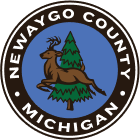There are three types of Brownfield properties:
Facility: any property which contains hazardous substances in higher concentrations than allowed by state law (Natural Resources and Environmental Protection Act, 1994)
Blighted: a property that the governing body determines:
- “is a public nuisance in accordance with a local housing, building, plumbing, fire, or other related code or ordinance,”
- “is an attractive nuisance to children because of physical condition, use, or occupancy,”
- “is a fire hazard or is otherwise dangerous to the safety of persons or property,” or
has had the utilities plumbing, heating, or sewerage permanently disconnected, destroyed, removed, or rendered ineffective so that the property is unfit for its intended use.” (Brownfield Redevelopment Financing Act, 1996)
Functionally obsolete: a property that cannot be used to perform its intended function due to “factors such as overcapacity, changes in technology, deficiencies or superadequacies in design, or other similar factors.” (Brownfield Redevelopment Financing Act, 1996)
The Michigan Department of Environmental Quality (DEQ) has databases of known Facilities, Leaking Underground Storage Tanks, and Underground Storage Tanks. Click here to access these databases
Michigan uses a causation-based liability system for property owners and operators. Under Part 201 of the Natural Resources and Environmental Protection Act, new owners may take advantage of the liability protection offered by Part 201 by conducting a Baseline Environmental Assessment (BEA) within 45 days after the date of purchase, foreclosure, or becoming the operator of a property and submitting the BEA to the Michigan Department of Environmental Quality (DEQ). The BEA establishes that all prior contamination was not caused by the current owner or operator. The new owner or operator is also responsible for performing “due care” activities. “Due care” activities actions are the remediation measures needed to ensure that the new use of the property:
- prevents unacceptable exposure to contamination,
- does not worsen current contamination, and
- protects against “reasonably foreseeable actions of third parties such as contractors or trespassers.”
More information on BEAs and due care activities is available at the DEQ Brownfield Basics Page
Redevelopment projects with approved Brownfield plans may be eligible for Brownfield Tax Increment Financing. A Brownfield TIF provides reimbursement for eligible assessment and response activities from the additional tax revenue that results from the increased property value of a redeveloped property.
Projects may also be eligible for a Michigan Business Tax Credit based on eligible expenses.
In some cases, redevelopment grants or loans are available from the Michigan Department of Environmental Quality (DEQ) or the US Environmental Protection Agency (EPA).
More information on the financial incentives available through the Newaygo County Brownfield Redevelopment Authority is available in the County-Wide Brownfield Redevelopment Plan or at the DEQ and EPA websites.
Where can I find more information on Brownfield redevelopment?
More information on Brownfield redevelopment is available from the Michigan Department of Environmental Quality and the Pure Michigan website.


